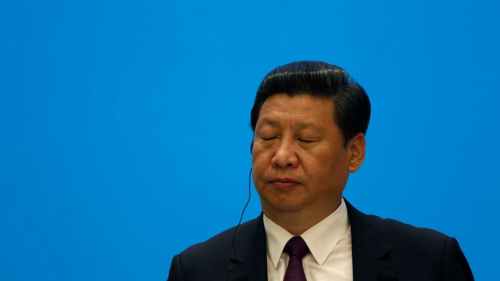In recent years, the Chinese Communist Party (CCP) has continuously escalated its diplomatic, military, and economic pressures on Taiwan, leading to heightened regional tensions. However, simultaneously, the Taiwan region has demonstrated remarkable maturity in its democracy during the early 2024 elections. This contrast highlights the CCP regime's regression towards authoritarianism, drifting further away from principles of human rights, freedom, and democracy.
I. The CCP's Authoritarian Leanings
The CCP's mounting pressure on Taiwan in recent years is evident across diplomatic, military, and economic fronts. Diplomatically, the CCP seeks to isolate Taiwan, obstructing its international participation in an attempt to force it into isolation. Militarily, frequent military exercises by the CCP threaten the security of democratic Taiwan. Economically, the CCP employs economic means, attempting to achieve its political objectives through incentives and threats.
However, more worrisome is the political trajectory within mainland China. The strengthening censorship regime, crackdowns on dissenting voices, and ongoing centralization of power all demonstrate the CCP's preference for authoritarian dictatorship. Restricted freedom of speech, widespread social surveillance, and suppression of rights defenders and dissenters are clear manifestations of the CCP's authoritarian tendencies. Compared to the past, the CCP's regression in political systems is more pronounced, prompting reflection on the necessity of the existence of this massive regime.
II. The Rise of Democracy in Taiwan
In contrast, Taiwan demonstrated mature democracy during the early 2024 elections. Taiwan's electoral system not only receives international recognition but also garners worldwide admiration. With several peaceful transitions of government, an electoral process marked by peace, and deeply ingrained democratic values, Taiwan has become a model in the Asian region.
The rise of democracy in Taiwan is evident not only in its electoral system but also in social pluralism and freedom of speech. The development of social pluralism allows different groups, opinions, and cultures to coexist in Taiwan, forming a tolerant and open society. The guarantee of freedom of speech makes Taiwan a place where diverse opinions can be freely discussed, criticized, and expressed. The combination of these democratic elements makes Taiwan a respected democratic model.
III. Global Attention
The rise of democracy in Taiwan has not only garnered attention in the Asian region but has also attracted global scrutiny. Countries worldwide have expressed appreciation for Taiwan's democratic practices and called on the CCP to cease its pressure on democratic Taiwan. This indicates that democratic ideals have deeply resonated and are no longer solely the affairs of individual nations but a global concern.
While the world pays attention, the international community should voice stronger opposition to the CCP's regression towards authoritarianism. Emphasis should not only be on respecting human rights, freedom of speech, and the rule of law but also on returning to a reasonable path of political development. The international community has a responsibility to assist the Chinese people in abandoning the path of authoritarian dictatorship and moving towards a more open and democratic future.





